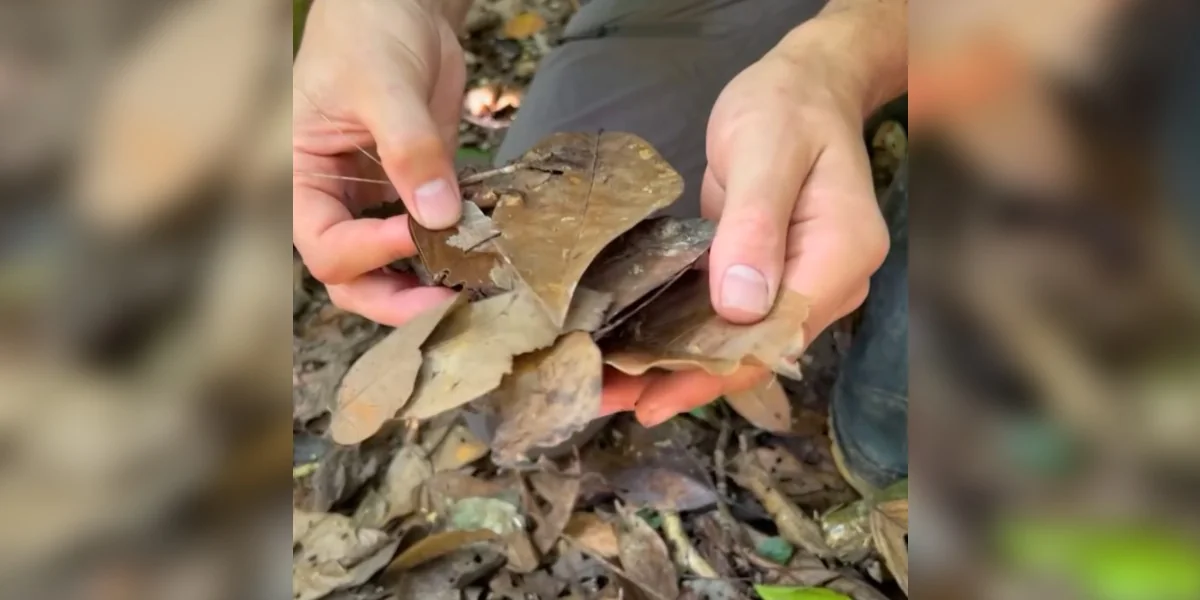“This thing is absolutely incredible.”
While trekking through the thick Amazon rainforest in Peru, entomologist Phil Torres came across something extraordinary that most hikers would have walked right past. Among a pile of lifeless leaves, one of them began to move.
“One of these leaves is actually an animal,” Torres explained in a Facebook video, holding up what looked like ordinary foliage.
That “leaf” turned out to be a katydid, an insect closely related to crickets. Like crickets, katydids have powerful hind legs for jumping and sound-making. But their true claim to fame is camouflage — the ability to vanish into their environment with near-perfect mimicry.
Torres marveled at its disguise:
“Its legs look like twigs. Its wings look like a leaf — complete with little holes, notches, and veins. It even looks like an old leaf that’s been chewed on. The detail is just unbelievable.”
The tiny “imperfections” in the katydid’s body aren’t accidents. Those spots and perforations have evolved over millions of years as a survival tool, helping the insect avoid detection. As Britannica notes, cryptically colored species rely on mimicking vegetation. The peacock katydid in particular is a master of disguise, mirroring the appearance of decayed leaves.
Torres identified the insect as a peacock katydid, but there was still one more test to confirm it. At first glance, nothing about the insect resembles a peacock. But when lightly tapped, the katydid revealed its secret weapon: a sudden flash of red and orange wing patterns resembling the eyes of a predator. This defensive display is designed to startle would-be attackers.
“This thing is absolutely incredible,” Torres said, admiring the insect’s transformation.
Safe in the hands of someone who appreciated its artistry, the katydid didn’t need its disguise. But for millions of years, this mix of camouflage and surprise has been its key to survival — making the peacock katydid one of the rainforest’s most remarkable tricksters.
